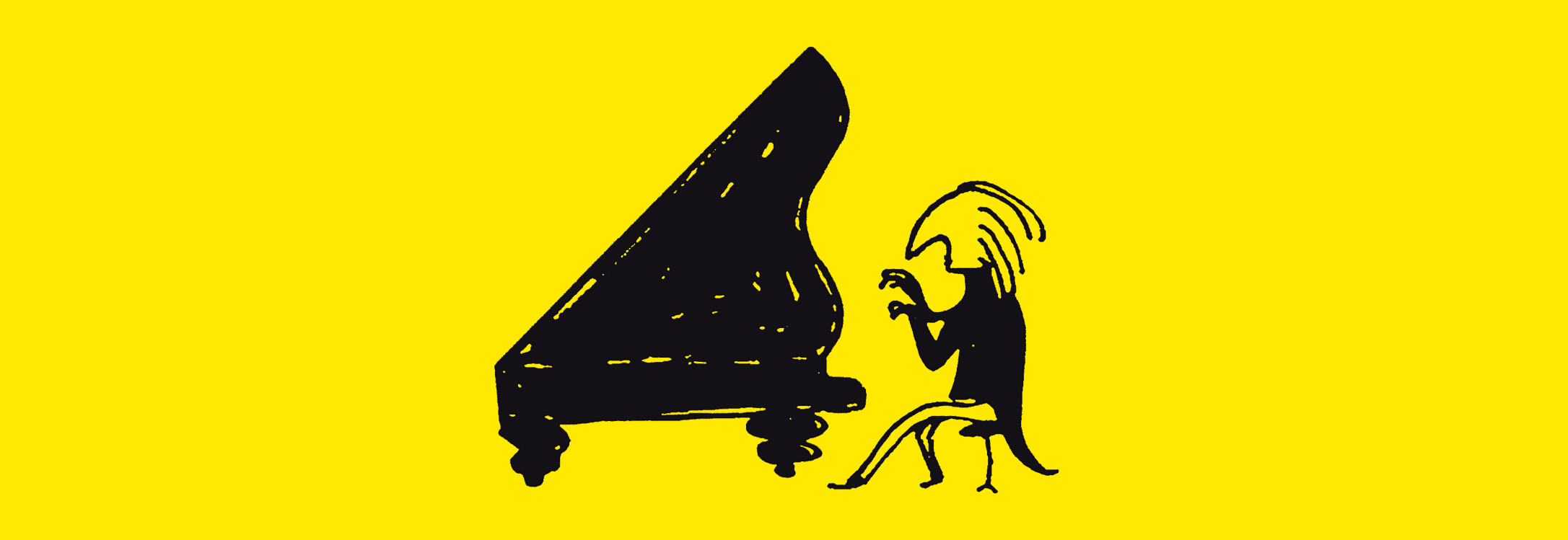
Every day, we have to decide, both consciously and unconsciously, what is or isn’t a decent thing to do – and we don’t always get to make sure we’ve made the right choice. Professor of Ethics Paweł Łuków talks to Paulina Wilk about integrity and decency in modern times.
Paulina Wilk: What do we need for our conversation to be decent?
Paweł Łuków: Moral norms are necessary for giving direction to what we do and say. And they do it from the back seat, so to speak. If we are decent and honest, we usually don’t have to wonder whether we should tell the truth in a conversation. Being decent is – among many other things – a meta-norm of sorts, one that defines our entire personality. For a person to be decent, they also have to be open, genuine, honest and straightforward, as well as able to keep their word, give credit where it’s due, and so on. There’s a lot of it, the list could go on. We could arrive at the conclusion that an ethical lifestyle is incredibly demanding since we have to constantly deliberate over one thing or another. In reality, though, we usually behave decently enough not because we think about it constantly, but because we form our decisions and actions following ethical norms.
So integrity is not tied to consciousness?
We usually become aware of our ethical norms when we find them hard to follow. Rudimentary forms of behaviour regulate the way we act towards others as well as ourselves. Integrity, however, is above them, which is why I call it a meta-norm. We don’t always have to be decent on purpose, just like we don’t have to be constantly aware of telling the truth. We just do it. It’s not unlike traffic rules. An experienced driver doesn’t have to remember the right-hand rule at uncontrolled intersections; she simply gives way to vehicles coming from her right. But when four cars approach the intersection at the same time from all four directions, she might have to think about what to do and perhaps remember the right-hand rule.
How do we know whether we’re behaving decently or not?
In our part of the world, we traditionally attribute it to conscience. We believe that humans have a moral compass of sorts, but it could also be described as deeply internalized moral norms. When assessing someone’s integrity, we usually make a judgement based on their previous actions.
Exactly. Even if decency is a character trait, we tend to be decent in some circumstances, and not so much in others.
This trait doesn’t have to be unblemished. We are morally imperfect, which is why we need norms. Were we angels, we wouldn’t need any.
What do we need them for?
First, they mould our sensitivity, just like with the driver who knows without thinking where to look when approaching an intersection. These norms remind us where to direct our attention. Someone who has internalized the norm of truthfulness well will be honest and authentic in general. They will be true. St. Thomas Aquinas wrote about the virtue of truth-telling, which I interpret as respect for the truth – that is, being careful with the information we have. Truth-telling does not equal rattling out everything we know. It requires thoughtful consideration, wisdom and the ability to convey information in a certain way: sometimes it means moderation; on other occasions, it’s more about bluntness. A person who has internalized the norm of altruism, compassion and magnanimity will never walk past another person in need, as they will notice it straight away.
What about the other role of moral norms?
The other role is to let us know what to do. They regulate our behaviour. Moral norms help us recognize a challenging situation first and then lead us towards the appropriate response. However, the response will not always be obvious, and sometimes it might require more consideration.
What if our behaviour is not ethical? The word ‘decent’ is gradable – one can be decent, more decent, the most decent.
We can certainly compare people by saying that someone is more decent than others because they are more adamant in following the norms that make for decent behaviour, or because they follow those norms with more sensitivity or adaptability to certain situations. We could also grade our assessment of someone’s decency concerning an isolated situation: someone behaved in a certain way. They could have exhibited more or less sensitivity, or acted in a more or less appropriate way.
So what would be the opposite of decent behaviour?
I could simply say ‘malevolence’, but it would be an easy way out. I think the opposite of decency is probably hypocrisy. With hypocrites, there is vast dissonance between the norms they claim to follow and their actual behaviours. They aren’t worried about it at all, either. Meanwhile, someone fair-minded will feel bad and remorseful about violating a moral norm. A decent person feels remorse even if they cause harm to someone unwillingly or by accident. Remorse is proof of their integrity. We expect the perpetrator to feel terrible about what they have done, even if they were not at fault. If they were happy to accept our reassurances that it was just bad luck, something they couldn’t have possibly predicted, agreeing there is nothing to worry about, we would find it suspicious.
Let’s take a look at another scenario: someone decent behaves unfairly on purpose. What then? What are the consequences?
In such a case, remorse kicks in. We can feel repentant, try to atone, reverse the consequences of our actions, or make it up to the people who were harmed. Another thing is letting them know we do feel responsible.
So what makes us internalize moral norms (or not)? How come I drive under the speed limit, yet the person in the lane next to me is speeding past at 150 miles per hour?
Aristotle would have said it is a matter of habit. We are raised in groups and so we internalize their standards of behaviour. At the same time, we create an ‘inner observer’ who lets us know whether we are following the norms, or at least gives us a warning when we violate them. In modern times, an autonomous person model is gaining popularity – that is, someone who not only receives prompts from their environment, but also recognizes the quality of social norms on their own. This way, such a person shapes their moral character. For example, I choose to keep my word because I thought about it and decided it is worth doing or that it’s something decent people do. At least since Socrates, we value intellectual examination of our moral norms. This way, we can reflect critically on ourselves.
Modern times seem to force such autonomy onto us. Models of behaviour are multiplying, and meanwhile we have to remain independent.
I’d rather say that we’re strongly encouraged to be independent. There is no necessity to speak of. We all know people who are certain of their judgement and unwilling to self-reflect. However, faced with a discrepancy in moral offers, we are all forced to make choices. Some of us think about it while others make their choices when confronted with a particular challenge, and I’d say the latter is more typical. Some never have any doubt at all and it seems that nothing could ever make them rethink their perspectives.
But doesn’t the plenitude of moral offers lead to multiplied models of decency?
As a meta-norm, decency remains rather solid. After all, we need some minimum level of being true to ourselves and our values. What causes us more trouble is being decent towards others and norm-abiding behaviours in particular situations. We are more prone to discussing someone’s ‘foulness’: lying, not keeping one’s word, being dishonest and devious.
From what you say, it feels to me that the question of decency remains elusive. Let’s try to pin it down with some examples. The world entered the year 2022 with two high-profile cases of unfairness. First, tennis player Novak Djoković entered Australia unvaccinated. He claimed that being convalescent, he didn’t need to be vaccinated against COVID. However, there is proof that during the time he claimed to have been COVID-positive, he participated in various public events and wasn’t ill at all. As a result, he was deported from Australia and missed a prestigious tournament. The second case involves the British prime minister Boris Johnson, who attended a secret party during the time he imposed a hard lockdown on the entire nation. As a result, an official enquiry was opened (and later an investigation by the police). Since the media wrote about both situations for weeks, does it mean decency remains something that matters to us? Or perhaps these scandals prove that these days, fair and decent behaviour is not so easy to come by?
Those situations are similar, but there are some important differences between them, too. As for the tennis player, it seems to me to be the case of what they call playing dumb. Such people are deliberately obtuse, treating others with disregard and disrespect, believing nobody will find out the truth. As for the prime minister, it is more about the suspected hypocrisy – he publicly imposed a set of rules on the nation while not complying with those rules himself. What made us so outraged with these two events? Regarding Djoković, public opinion was very divided. In the case of Boris Johnson, the verdict seems to be unequivocally condemning. Was it just because he was caught in the act of hypocrisy? After all, there is a common belief that politicians are allowed more than us and that when it comes to politics, some forms of dishonesty are acceptable. Perhaps it is also about jealousy and envy – everyone else had to follow the rules and make sacrifices, while Johnson decided the same norm does not apply to him.
The men at the centre of both stories represent elites. What does this mean? When it comes to ethics, does the example come from the top?
A bad example does, for sure. Also when it comes to norms of behaviour: bad money drives out good money. Freedom of action is easier than living with certain limitations, and ethical living is largely about self-limitation and assessing certain options we find tempting or attractive as unacceptable. Does a good example also come from the top? I’m not sure. It can only come from circles that meet certain requirements. Nowadays, political circles are considered immoral too often to be in this group. Standards of behaviour are set by famous people such as artists or influencers – that is, people who lead their daily lives in a way that resonates with their followers’ sensitivity.
Are we expecting them to be more decent over time? After all, standards of behaviour are changing. For example, we are now more sensitive to such issues as discrimination against women, respecting people’s gender and cultural identity, or the state of our planet.
It would be hard to make such popular figures into people whose job it is to teach us morality. Although I must admit that when it comes to such problems as gender equality, respecting gender identity and the climate crisis, they have strongly impacted social awareness of those issues. Those people should be aware of the impact they have on others. They should also exhibit some sense of responsibility, which would in turn help them keep their public behaviour in check. Since they aspire to set an example in the private sphere, they should lead their personal lives by what they preach.
When it comes to decency and integrity, are we equally demanding of all famous people? You say that we consider politicians to be dishonest while expecting athletes to be role models of fair play.
I think that sports fans usually identify with the athlete they support. They play on his team and aspire to be close to him. So when he behaves in a way that fails their expectations, they can either condemn him and leave the community, or start making excuses for his actions to justify staying on his team. When it comes to people in power, different logic seems to be at work, at least in democracies, where the leaders are there to serve us all. We expect the people we employ to do certain work in public life to do this work honestly, keep their word, be open about their weaknesses, and not deceive us. Even if they think it’s for our good. This is why we hold them accountable for their promises and react when we feel that we’re being hoodwinked.
How much can dishonesty cost us?
Usually, someone who is dishonest cannot enjoy the profits of cooperation. When we know someone does not play fair, we will not include them in subsequent levels of cooperation. We will distance ourselves from such a person, therefore imposing sanctions on them. In such a case, they will have to change partners or make do by themselves. But sometimes, we are forced to work with someone who behaved dishonestly and to share the price of their actions. We will try to protect ourselves from their dishonesty and we will start to control them. A loss of trust will follow. As a result, we will have to spend a lot of time and money on protecting ourselves from someone else’s dishonesty.
When did we develop the concept of decency? How has it changed through the ages?
It has probably been part of us since the dawn of time. Fairness and integrity require a reference group. As a meta-norm, it makes for a condition of being part of a community and applies to its members. Historically, unfairness towards members of other groups was often allowed – especially those perceived as oppressors or adversaries. In such cases, being dishonest was perceived as outwitting the opponent. I do not suspect serfs would have felt remorseful about lying to a landlord. They could have considered it a way of making up for the social injustice.
Are we still relativizing honesty and decency towards others today, in a society built on differences and competition rather than class oppression?
There used to be a silly saying that went like this: ‘In love and war, all is fair’. But it’s not true. Even in war, people had to follow a code of chivalry. Nowadays, ethical rules surrounding the battlefield make for international conventions and army codes of honour. As for intimate relationships, decency and honesty about one’s intentions were always a necessity, and as time goes on, their importance is nothing but growing. As long as it is a fair relationship of two equals, of course.
Many people believe that in business, everything is fair game as long as you don’t get caught. But even if a lot of people get away with trespassing, the ethics of capitalism – as described by Max Weber – was generally considered to be the very opposite of such a model. Capitalism was born as a moral undertaking, and business prosperity was considered to be proof of moral perfection. Merchants’ honesty was held in high regard. Artisans also had a strong sense of professional dignity as practitioners of an art they could not betray. I’m afraid that since the 1980s – as the economy was gradually deregulated, especially in the US and UK – it became a common belief that in business, one can get away with a lot. The later development of business ethics and the strive towards establishing corporate social responsibility systems (at least on a declarative level) lets us believe that it’s not a no-holds-barred game after all. On the other hand, though, we remember that after the 2008 financial crisis some financial companies were, famously, ‘too big to fail’.
The Polish author and diplomat Władysław Bartoszewski [also a member of the Żegota comittee, an underground organization that attempted to help Jews in occupied Poland – ed. note] said: “It’s worth being decent, although it doesn’t always pay off. It pays off to not be decent, but it isn’t worth it.” In this sentence, we can see a clash of symbolic and economic values. Do those norms have to be conflicted?
I would say instead that it is a clash of moral values and all the rest. The tension between them has to exist. In a perfect world, it would pay to be noble. The saying ‘a lie has no legs’ is an attempt to link honesty to rewards. It expresses the belief that this is how things should be. But they are not. Plenty of frauds and scammers are quite successful at profiting from dishonesty. But it does not mean it serves them, meaning that they can avoid moral condemnation. Morality has to be a step ahead of us at all times. It has to challenge us and give us tasks to do. When someone feels there are no moral challenges ahead of them, they are either guilty of pride or have lost all their sensitivity. After all, in almost every situation, you could have behaved better. And our everyday life is full of moral challenges, too.
Do we embellish the past when we say that people used to be more honest and decent back in the day?
It is our universal tendency. We like to idealize what happened in the past. As long as it was not traumatic.
But you said it yourself that nowadays, the moral offer is becoming increasingly diverse. The general norms are being challenged and are more difficult to respect. So perhaps it was easier to act decently in the past?
Maybe so, in certain situations, but the expectation of integrity as such seems to be universal. The very fact that we still react strongly to dishonesty proves that we expect society to play by the rules.
Let’s try and examine a few different situations. Let’s say I have a referral for an urgent surgical procedure. I’m insured, so I call the public hospital to arrange a visit. The nurse tells me that the first available appointment is in a year, but then she lowers her voice and tells me to go to the emergency room and make it look a bit worse than it is. This way, I can get the surgery done sooner. I follow her advice and it works. Who is being dishonest here: me, the system or the nurse?
Even decent people cannot always afford to be perfectly fair-minded in the financial sense. Those who have the money will have the procedure done privately. Many middle-class people do this in Poland, they pay double for their healthcare, and the fact that they are forced to do so is not fair to them. Those who don’t have the money are sometimes forced to cheat the system.
Could we say the healthcare system is unfair?
Metaphorically, yes. We could say it is unfairly organized, meaning its rules are obscure, unfair or insensitive to the needs of its users, as it fails to meet them.
Was the nurse being fair, then? After all, she gave me advice because she wanted to help me.
From the perspective of the institution that hired her, the nurse’s behaviour was not fair. But if we take her out of her role as a hospital registrar and see her as a potential patient, her situation is no different from that of any other patient.
Let’s take another example. I visit plenty of websites every day, and they all show me a message that says in tiny print that they will collect my data. I don’t have time to read and consider all the clauses thoroughly, it’s simply unfeasible – so I just click and agree. Is that fair? Can we sort out the problem of decency and honesty with a simple terms-and-conditions page?
If we agree without reading, we are being reckless. It would be dishonest of the website provider to present information in an unclear or ambiguous way just to pacify the user. Regulations regarding our agreements to data processing are there to protect our interests. We don’t have to make use of them, but we have to be aware of the consequences. It could always be the case that we trust the online system to some extent; we believe that nothing extremely bad is going to happen to our data because the law will protect us – and following this belief, we click the ‘Agree’ button.
But in the online world, legal norms are still trying to keep up with practice. Maybe it would be more decent to not collect our data at all? Perhaps it is the starting point that lacks integrity?
The current norm is such that we have to give consent for our data to be collected or used. Of course, we are concerned that just browsing the website might be the actual transaction. I can only enter the website once I agree for my data to be processed for one purpose or another. Data and online behaviours are the new currency in a giant business. I agree this area still lacks sufficient regulation, but the EU GDPR directive laid out a new standard for the protection of personal data – and that’s the direction in which the world is going. Take the pharmaceutical market. A century ago, there were no regulations on how clinical tests should be carried out. Nowadays, we have a plethora of intricately detailed regulations.
Medicine opens up an exceptionally vivid field of dispute on integrity. On the one hand, there is plenty of scientific proof encouraging our trust, while on the other, alternative systems of belief, including anti-scientific ones, are sprouting up one after another.
Public education has been neglected terribly. We don’t teach people what science is and where knowledge comes from. The average Polish citizen believes that if scientists have proven something it must be a definite truth. However, science rarely ever offers final answers, just the best answers available. What has been scientifically proven will most likely be revised over time. Science is developing, and correcting our previous beliefs is part of the process. It’s science’s unique ability to self-correct.
But one of the reasons we are wary of science is our doubt about scientists’ integrity due to their connections with big businesses.
At the same time, we profit in various ways from science-based business ventures. In the 20th century, science underwent an enormous transformation. Many people believe that all of science is a selfless pursuit of truth. It is only the case in the world of academia and basic research. A vast part of science exists not only at the crossroads of academia and business, but within the business itself, in the research and development departments of various companies. The scientists who work there operate differently than we do at universities. They cannot freely choose the subject of their research; instead, they receive a task, a problem to solve. It differs from the traditional image of science and knowledge viewed as the shared legacy of humanity. However, all scientists are obligated to pursue the truth – and the vast majority of them do. Also because they know that whatever they present as their discoveries will be peer-reviewed and every error, whether made on purpose or not, will come to light.
Do I have any reason to worry about scientists’ integrity, then?
Their connection to big businesses is unavoidable. Whom should a drug producer consult about pharmaceutical tests results if not a doctor? Who should conduct medical research? It should be experts, preferably the best ones out there. In modern science, the number of potential conflicts of interest is growing. We must minimize such occurrences, and when unavoidable, they must be exposed.
So the most honest thing to do would be for a doctor to admit that they are prescribing me a drug on which they gave an opinion in exchange for payment and, say, an invitation to a symposium in Paris?
It is honest for a doctor to recommend a drug to improve their patient’s health and choose one that, to the best of their knowledge, will be the most beneficial. In some countries, databases of doctors who cooperate with pharmaceutical companies are publicly available.
The best solution, then, would be to eliminate money from that equation.
Such a solution would be the best one if work did not require payment. Pharmaceutical companies have to seek advice from the best doctors, pharmacologists, biologists, and so on. We must also remember that research does not happen in some ethical and legal void. Every project of medical scientific research must first be approved by an appropriate bioethical committee. In scientific journals, it is the norm to present such an approval first, and then to submit a declaration on any conflict of interest. Those are just some of the solutions put in place not only to protect the safety of medical patients, but also to build the trust of science.
Do we need to maintain integrity only concerning other people? Am I being decent when buying chicken meat for dinner even though I know that industrial farming is causing those birds a lot of suffering?
In such situations, people go for all kinds of excuses and defence mechanisms. They don’t want to know how their sausage is made, or they say there is no other way, we simply have to eat meat. We probably do it also to maintain our sense of integrity. If you were genuinely concerned about the suffering of slaughter animals and still ate meat for the superficial pleasure of consuming fried animal protein, you would be dishonest and lacking integrity. You might be a hypocrite, even.
I drive a car, even though I know that according to over 95% of scientists, it’s contributing to the climate crisis. Am I lacking integrity in my relationship with the planet?
If there is a choice – because many people simply have to use a car – there are many ways of solving this problem. You could drive a less gas-guzzling vehicle or consider a different means of transport. There are ways of limiting our harmful impact on the world.
Are we already at the stage where we can examine our everyday choices in the context of integrity towards other life forms?
In the West, the world is still perceived as a place meant for colonization. Even with space, we speak of conquering it rather than of getting to know it. But I don’t know if it’s a matter of integrity.
You mentioned that decency means, among other things, respecting others. Could we extend this respect to our planet?
I would call it respecting the world as it is, meaning showing care and restraint in our relationship with nature. Our part of the world has always lacked restraint. There is also another thing that I would call humility towards other creatures and nature.
Does integrity exist in nature?
We cannot speak of integrity when talking about a creature that has no intent or awareness of the norm, and is not aware of the discrepancy between the things it desires and the things it should do instead. Of course, not all animals are the same. With dolphins or some primates, the issue is worth considering: experiments show us that some animals other than humans can perform such complex mental tasks as cheating or deception. If we knew that they also plan their actions and realize that their behaviours might cause harm to others, it would open up a field of discussion on their integrity. But let’s not get ahead of ourselves. We must keep in mind that humans tend to anthropomorphize other animals by projecting our emotional states on them. We also like to view ourselves as models or points of reference for other creatures. For example, we say that a chimpanzee or a dog is doing something like a human. But from the perspective of phylogenetics, it is the human who does certain things like a chimpanzee or a dog.
Could nature prompt us towards moral behaviours?
It depends. It would be wonderful if we could ever be as selfless and self-sacrificing as some animals, or as loyal and faithful as some birds. But in the world of animals, we can also see a lot of ruthlessness – for example, when a lion hunts an antelope or kills cubs that are not his. We view those situations from various perspectives because we view nature as a model of behaviour. But we also do it because we have developed a moral code through which we view the world, including the non-human one. We believe one should be faithful, caring, tender, selfless. However, what we see in the world does not tell us how things should be. Nature is neither fair nor unfair.
Our knowledge of nature is constantly expanding. Perhaps it is time we started treating it like an equal?
I think it’s more about accepting the order of the world to which we owe some sort of gratitude. Nature is a great system on which we are dependent. We can exist because of it. It is time to take a fair look at ourselves and our place in the world. The proof of our moral maturity towards nature would be our ability to view ourselves from the outside. Not unlike those astronauts who saw the Earth from space. Maybe then we would notice how tiny we are, despite our achievements and ability to shape ourselves and our environment – and how much we owe to this speck on which we are floating in space.
Parts of this interview have been edited and condensed for clarity and brevity.

Paweł Łuków:
Professor of Humanities and Dean at the Faculty of Philosophy at the University of Warsaw. His academic interests include normative, clinical and research ethics, as well as bioethics.










